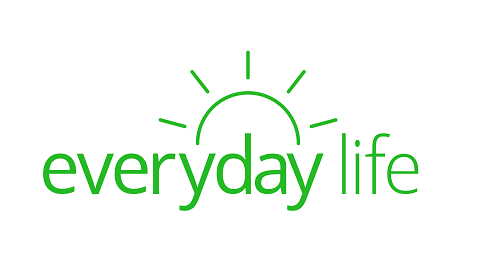Most people buy life insurance when they get married or have children and want to make sure their family can pay the bills if they die early.
But some people consider buying life insurance when they’re much older. Some reasons why a senior citizen may want life insurance is to:
- Leave a legacy to their children, grandchildren or a charity
- Provide their spouse with retirement income if they have a pension without a death benefit
- Offer cash to heirs to continue running a family business
- Help a child or grandchild with special needs who will always need financial support
- Have money for funeral expenses and end-of-life health care needs
- Get a new policy after a term life policy expired
Even though the annual premiums are higher when you get older, you still have several coverage options at that age.
Senior life insurance
Premiums are lower for younger people who buy life insurance. People who buy life insurance in their 20s and 30s will likely live much longer than someone who buys a policy as a senior. Most young people will pay premiums for decades before they die — or may not die before their term life policy expires.
However, people in their 60s or 70s — and sometimes even early 80s — can still qualify for coverage. You may be able to buy permanent life insurance up to age 80, and sometimes age 85.
“Individuals in their 60s, 70s and older can get life insurance,” says Paul Lapiana, head of MassMutual’s U.S. product. “Generally speaking, permanent life insurance is available up until older age brackets than term insurance.”
Term life insurance lasts for a set number of years — such as 10 or 20 years. Permanent life insurance (such as whole life and universal life) doesn’t expire as long as you pay the required premiums.
Keith Moeller, a wealth management advisor with Northwestern Mutual in Minneapolis, recently helped a 67-year-old man who was comparing term and permanent policies. The longest term policy for a person that age would only last for 15 years. Instead, the person chose a permanent policy that could continue no matter how long he lives.
Moeller recently worked with several people in their 60s or older who bought permanent life insurance. One reason for life insurance is income replacement. That could include making up for the decrease in combined Social Security benefits after the first spouse dies or to continue income for a surviving spouse or partner after pension payouts stop.
“When you look at their financial plans, sometimes there’s a need for life insurance to replace the income,” he says.
He also worked with a couple who wanted to create an education trust for their grandchildren.
“It was not a large policy, but it didn’t need to be a large policy,” he says.
The grandfather died a few weeks ago and the death benefit was paid to the education trust, so it’ll be available when the grandkids go to college.
“Because of the nature of life insurance, you can buy dollars of benefits for pennies of outlay,” says Moeller.
Senior life insurance with no exams
Having health issues can make it more difficult to qualify for a life insurance policy.
“Health is always a consideration, and as we get older, we get a tendency to develop more health issues,” says Moeller. “But you don’t need to be in perfect health.”
Some life insurance companies sell policies that don’t require a medical exam or offer coverage to anyone regardless of their health. These policies cost more and have smaller death benefits than policies that require a medical exam or check your health records.
“Typically, you’re paying premiums for a couple of years before there’s any death benefit beyond the premium you paid in” for guaranteed issue policies, says Moeller.
Insurers generally charge more for these policies because they assume applicants may be in poor health. If you don’t have major health issues, it’s a good idea to see if you can qualify for a “medically underwritten” policy first, which is less expensive.
Moeller typically prescreens his clients before they apply for a policy. That way, he’ll have a good idea whether or not they’re likely to qualify for standard life insurance coverage.
“I try to learn as much as I can about the person’s health history as they’re willing to share, and we call the underwriters in advance and ask what is the likely approval rate? Would they likely be in the best rate class, the second-best or third-best class? We’re pretty closely able to target the underwriting class and the rates that they’re looking at.”
Lapiana recommends that people with medical issues take extra steps to build a strong case for their health.
“If you do experience medical issues, be sure to follow and document treatment plans as insurers often look at one’s behavior in doing everything they can to live their healthiest life no matter the circumstance, which can make the difference between obtaining a policy and not, as well as premium rates,” he says. “Another suggestion is to work with an experienced financial services professional that represents financially strong life insurance carriers to obtain guidance on the best options for your personal situation.”
If you have a term insurance policy that will be expiring soon, you may be able to convert the policy to permanent coverage regardless of your health. Your premiums will increase, but they will be based on your health when you originally bought the policy.
Some policies let you convert to permanent coverage at any time; others only offer that option for a limited number of years.
What is the best life insurance for seniors?
The best type of policy depends on why you need the coverage. If you just need insurance for a certain number of years — for example, until you pay off your mortgage — a term policy may be adequate.
But if you need coverage no matter how long you live, such as having a child with special needs, consider permanent insurance.
You may have a few permanent insurance options. A whole life policy tends to have higher premiums, but it also builds cash value that you can borrow or withdraw while you’re alive (money you take out is subtracted from the death benefit).
A guaranteed universal life insurance policy usually has lower premiums but accumulates minimal cash value and is more like a term insurance policy that doesn’t expire.
Some permanent life insurance policies also provide long-term care benefits to help pay the cost of:
- A nursing home
- Assisted-living facility
- Caregivers helping with daily living activities (such as bathing and dressing)
How much does senior life insurance cost?
Life insurance premiums are based on your gender, age, health and the type of policy you buy. The older you are, the higher the annual premiums for the same type of coverage.
Here are MassMutual’s rate differences by policy for 60-year-old man in the best health class:
- A $250,000 death benefit could cost $778 per year for a 10-year term insurance policy.
- That same man would pay $1,395 per year for a 20-year term policy.
- A universal life insurance policy would cost that man $5,537 per year.
- A whole life policy would cost $10,078 annually until the age of 100.
Here are the results for a 70-year-old man in the best health class:
- A $250,000 death benefit could cost $2,275 for a 10-year policy.
- He wouldn’t be eligible to get a 20-year policy.
- A universal life policy would cost him $9,406 annually.
- Whole life policies are uncommon at that age.
Those are estimates from MassMutual. It’s a good idea to shop around when looking for life insurance. You may find better rates if you shop and compare multiple companies and policies.
Here’s a look at the average annual premiums for a $250,000 guaranteed level term life policy for a person classified as “Regular” health:
| 10-year policy | 15-year policy | |
|---|---|---|
| 65-year-old woman | $1,928 | $2,759 |
| 65-year-old man | $2,859 | $3,897 |
| 70-year-old woman | $3,268 | $4,700 |
| 70-year-old man | $4,945 | $6,713 |
| 75-year-old woman | $5,710 | $9,853 |
| 75-year-old man | $8,718 | $13,184 |
One way to reduce premiums if you’re buying coverage with a spouse is to get a second-to-die policy, which can help if you don’t need the policy to pay out when the first spouse dies, but you want to leave a legacy after the second spouse’s death, says Moeller.











